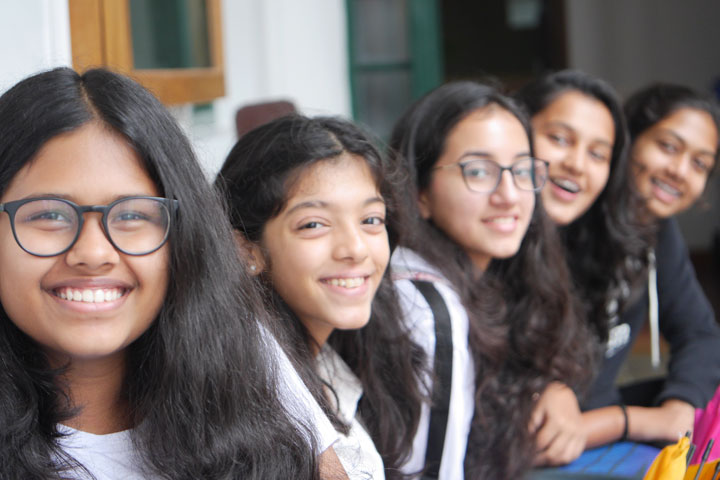
30 Jul Two weeks of summer – Summer at Woodstock 2018
After two weeks in the fresh mountain air of Summer at Woodstock, children have returned home invigorated—not only by the air, but by exposure to new ideas, the cultivation of new skills, and by a host of new friendships! Our first week included some beautiful sunny days that allowed for exploring the hillside, while our second week brought the magnificent rain storms typical of a Mussoorie monsoon, allowing participants to fully experience the physical challenges of walking up and down the mountain through rain and thunder. Though initially greeted with scepticism and groans, the daily walk became a fundamental aspect of life here that students learned to appreciate.
In keeping with the Woodstock approach, we value holistic development for the whole community–whether the community is here for a few weeks or a few years. Surrounded by the Himalayas, students immersed themselves in the community life and learning so distinctive to Woodstock, to the extent that tears were spilled when the time for goodbyes arrived, with promises to return next year! Students carry home with them many new stories and memories.
One of the most powerful aspects of the programme this year turned out to be our phenomenal group of student interns. Our interns looked out for all summer students, particularly the youngest ones and those feeling homesick, often staying up late into the night to make sure they felt comforted. They offered friendship and ensured everyone was engaged socially throughout the time at Woodstock. From sitting with students through mealtimes to sometimes carrying younger children up the hill to school, our interns were up to the challenge and quickly formed strong bonds.
Morning Programmes
English Language Acquisition:
The English Language Acquisition Class spent two weeks involved in various activities focused on the four areas of literacy: Listening, Speaking, Reading, and Writing. Daily language games helped build the students’ confidence as a group and encouraged them to have fun while learning. In the process of working towards their presentations, the students developed research skills and, at the end of the first week, they created PowerPoint presentations which they shared with their peers. By the end of the second week, they created fact files about a famous person which they presented to the group. They read The Magic Finger by Roald Dahl, and participated in drama activities which were not only enjoyable but also provided the teachers with a basis to check their comprehension of the story. Students wrote short creative pieces based on picture prompts, as well as short written responses relating to students’ thoughts and feelings.They also practiced parts of speech–nouns, verbs, adjectives, and adverbs – through games and feedback on their writing in class.
English Masterclass:
Guided by our experienced language and literature teachers, participants in our four English Masterclass courses explored a variety of texts and genres, learning to glean from the masters and thus improve their own writing skills. Particular focus was on developing creative thinking, creative writing, critical reading, and academic writing skills. Students learned to make inferences, identify character traits, and use context clues to develop their vocabulary; students deepened their metalinguistic understanding of how language works through learning the building blocks of language and grammar; they learned to organize thoughts and arguments in their writing and to conduct in-depth research, with paraphrasing techniques that enabled them to cite for power and gain authority in writing.
Spanish Language Acquisition:
In collaboration with the Instituto Cervantes, this intensive, two-week French immersion course offered participants the opportunity to gain the equivalent of a year of academic language instruction in just two weeks. Long-time Instituto Cervantes instructor and newly-appointed Woodstock Spanish teacher, Dr. Carlos Izquierdo, led participants to a new level in language ability. Participants in Spanish made great progress in reading and writing skills, but the most astounding improvement was in their spoken production and understanding. From starting the course struggling to answer a simple question in Spanish, these students worked up to making a full seven-minute video, purely in Spanish, of their language interactions with each other.
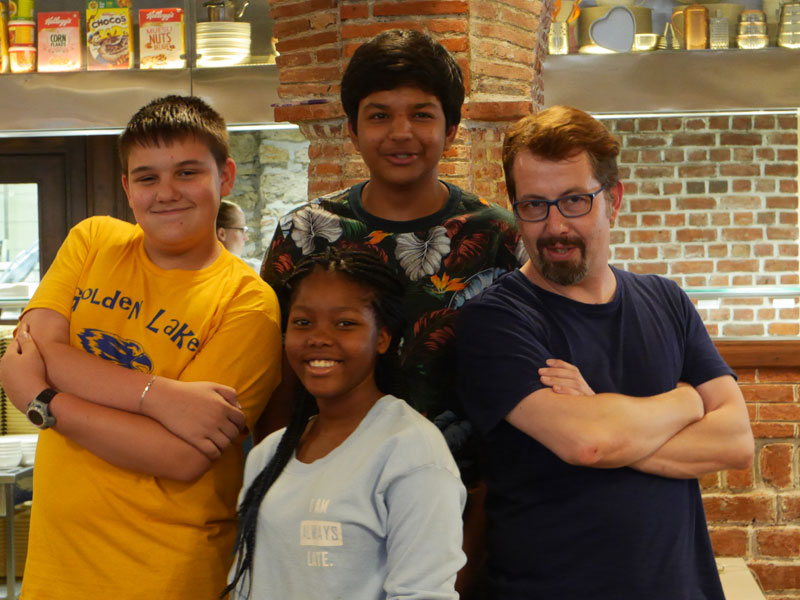
French Language Acquisition:
In collaboration with the Alliance Francaise, this intensive, two-week French immersion course offered participants the opportunity to gain the equivalent of a year of academic language instruction in just two weeks. Led by Alliance Francaise instructor, Eleonore Laporte, the course began with exposure to the larger francophone world, to help participants understand the breadth of the French language. Following this, participants moved through learning about how to examine ecology and the environment using French, as well as learning the language of economics and fair trade. Following this, particular focus was given to the Solidarity movement and the role of French women like Simone Weil in that movement, which allowed students to read academic sources in the original language. Afternoon French activities included poetry-writing, walks around the mountain, and learning to make crepes. After learning about Bastille Day and its significance to the French Republic and French culture, participants enjoyed a fireworks display to complete their Summer at Woodstock experience, on the eve of Bastille Day, just before they departed.
Entrepreneurship:
This year’s Entrepreneurship course focused on the lean startup approach favoured by entrepreneurs in the San Francisco area, and was taught by guest teacher, Susan Rits, a designer and entrepreneur with more than thirty years of experience. Beginning with how to develop and pitch an idea and moving right through the key principles of lean startups and how to develop a business plan, participants worked on preparing a pitch to investors. On the morning of Friday, July 13, participants had the opportunity to share a real Shark Tank experience, with all of the excitement and nervous energy that brings! We eagerly await news of whether the two venture capitalists who participated will be interested in investing in these students’ ideas for everything from apps to face-guards, to home aquaponics kits!
Media & Storytelling:
In the first week, students delved into storytelling by understanding the human need to tell and hear stories. They gained an understanding of the ingredients of an engaging narrative: plots, characters, and setting, etc. They created visual narratives and shared their stories with the rest of the class, confidently answering questions and defending their storylines. They also learned the basics of film shooting and editing and began enthusiastically looking forward to putting what they learned into practice.
In the second week, the class worked in groups to come up with a narrative that they would shoot/animate and edit. They presented their ideas to the class and learned to crowdsource and solve problems. The four groups managed to animate or film and edit their projects, screening their short films at the closing ceremony for the summer school (to much acclaim from their peers!).
Art for Change:
This unique studio art residency allowed five high-school students, six young professional artists, and three mentors to explore the question, “What does the mountain tell us about ourselves and about what it means to be human?” The residency kicked off with a climb up Top Tibba, the highest mountain in Mussoorie, a collective experience of swirling mists, gentle rain, getting lost, discovering a huge frog, bouts of fear and fatigue, and massive vistas suddenly opening up. That experience formed the basis for daily discussions on mystery, discovery, gratitude, fragility, resilience, and the relationship between wonder and transcendence, wonder and learning, wonder and empathy.
In the studio, artists worked individual responses into their art, continuing to learn from each other through shared working spaces and presentations. Artists worked in multiple media, from sculpture to watercolour, and from installation to painting. Two weeks of hard work resulted in a fabulous art exhibition to close the Summer at Woodstock programme, with student work integrated seamlessly with that of professional artists, so that they get to experience what it’s like to make and exhibit art as a professional.
Leadership:
This one-week programme allowed participants to explore what it means to lead, why we need leaders in the first place, and why they personally are interested in leadership. Over the week, the group discovered multiple leadership styles and how to decide which contexts demand which particular leadership styles. In addition, the course examined how to build a team and elicit the best from team members, as well as practical advice for leaders on everything from record-keeping to communication. Participants responded enthusiastically to the relaxed atmosphere and readily shared their ideas and questions, with many expressing a desire for a second week!
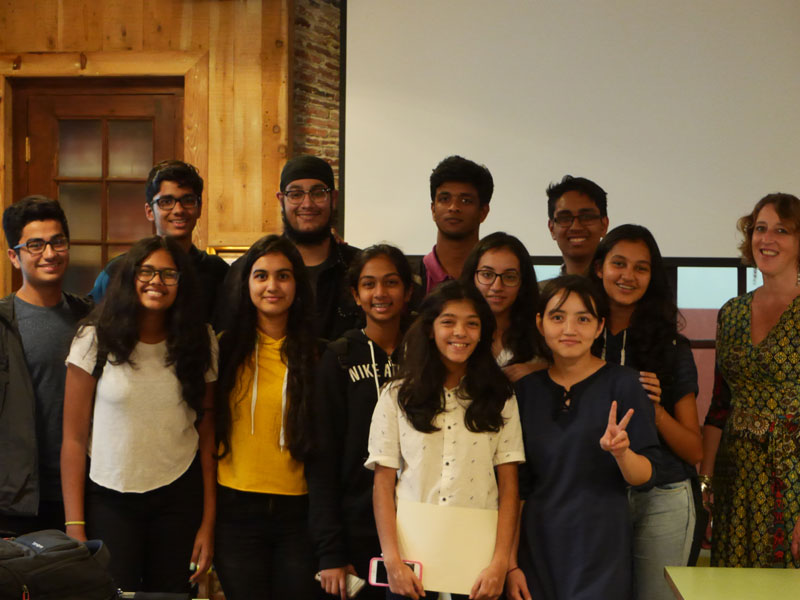
Afternoon Activities
Robotics:
Participants went through a journey of discovery from initial basic robot building to much improved, self-driven, creative robots, working up to participation in a Sumo competition. Under expert guidance, student skills dramatically increased from the start of the week to the end.
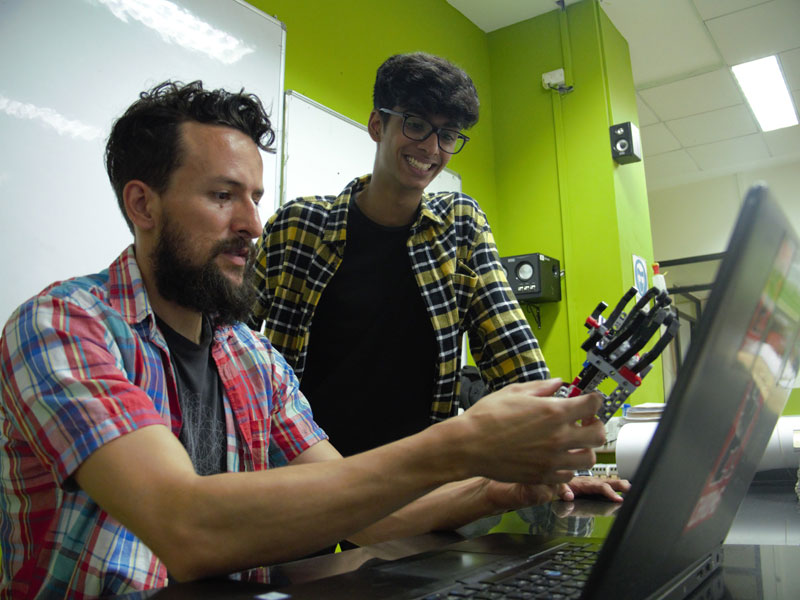
College Application Writing:
From learning how to choose a powerful topic to polishing multiple drafts, participants got a lot of practice drafting, sharing, and peer-editing college application essays. Through the week, students learned the elements of a persuasive college essay, along with how to present themselves authentically, including a values exercise to help them identify what mattered most to them. Students examined sample prompts and essays, including ones that worked and ones that didn’t. The week ended with practicing personal statements, learning the dos and don’ts of effective personal statements.
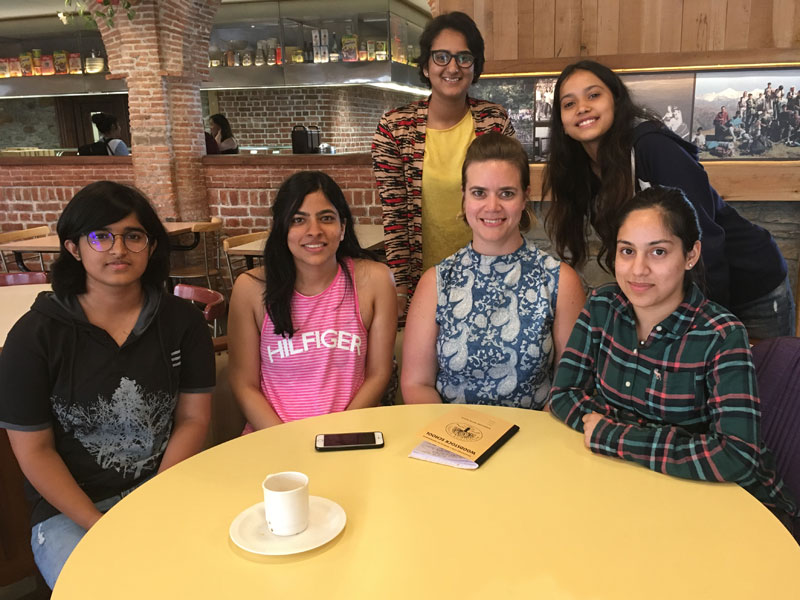
Guitar:
Under the instruction of Theo Benjamin, who the Indian Guitar Federation named “one of the leading classical guitarists in the country,” students learned the basics of popular guitar playing, working up to mastering a full song together by the end of a week of learning. Over the course of the week, students developed basic music literacy, learning how notes and chords are communicated and read.
Team-Building:
Participating in a wide range of activities and games that involved everything from rubber chickens to complicated rope puzzles, students learned the essentials of working together to accomplish a goal. Over the week, groups and teams were combined and recombined to give all participants the experience of learning how to bond as a team in order to achieve an objective more important than any one individual. Students also left the week with a toolbox full of activities ad games to use at home when trying to build a team.
Climbing:
Taking advantage of Woodstock School’s rock climbing room, participants were able to quickly progress in their climbing skills. Though many had never climbed before, they were able to reach heights they’d never dreamt of. The physical act of climbing also involves a strong sense of both dependence and independence–dependence on the guide holding the rope, and independence on one’s own skills. While someone is always there to help you down if you need it, there’s nobody there to find your next foothold; that can only be done by you.
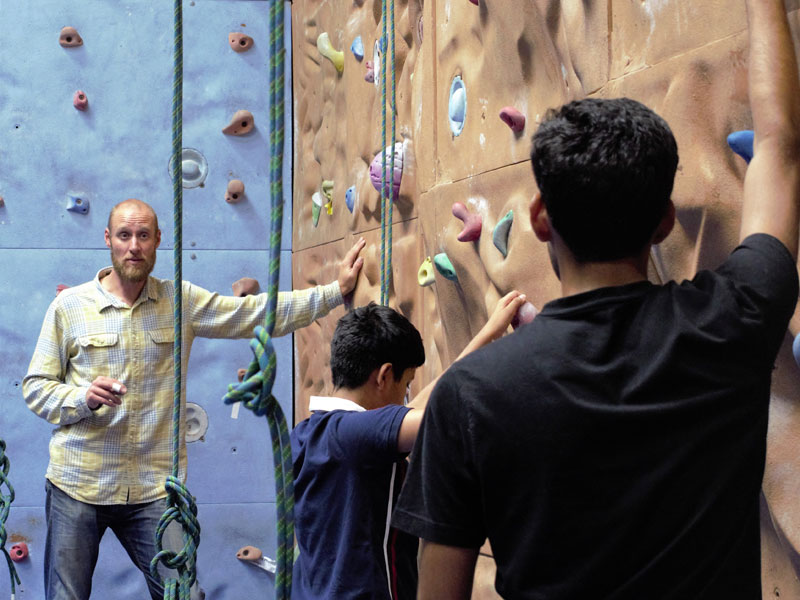
Sports:
In Woodstock’s world-class gym, participants in Sports explored a variety of different games and activities. The time started off with students who refused to even walk up to school and ended with enthusiastic, model sports fans. During this time, the students have cultivated a great interest in sports while playing games such as basketball, football, dodgeball, and kickball; which helped them to develop a supportive nature towards each other. Everyone gained a good understanding of sport’s importance in maintaining health and finding a mental stress release. Throughout these two active weeks, they bonded with each other and developed the ability to play sports that they had not tried before.
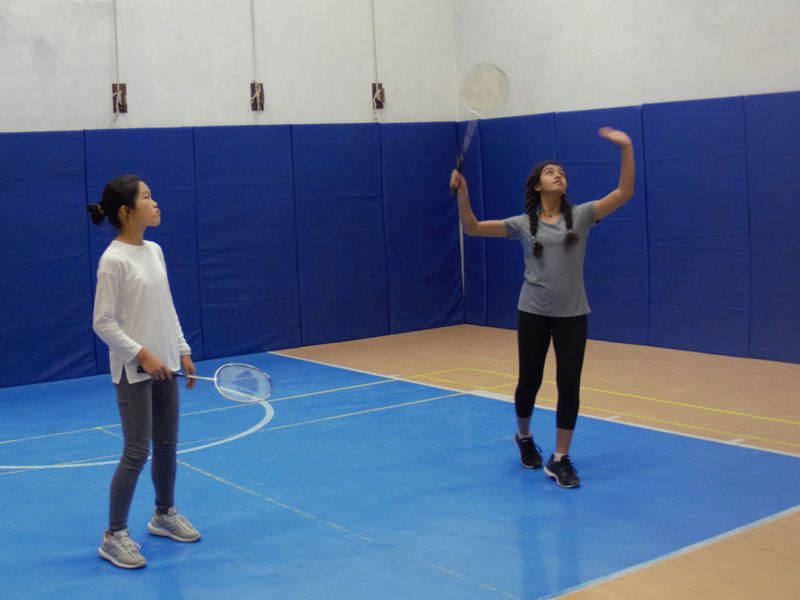
Art & Ceramics:
Over the course of the two weeks, participants learned the fundamentals of working with clay. Through experience, they began to understand the importance of line, form, and texture. In particular, they focused on how working with three dimensions in art differs from two-dimensional art. Each participant prepared one piece for firing in the kiln, learning the sometimes tedious processes of drying and firing. In addition to working with ceramics, students spent time drawing and painting, exploring the potential of different media to communicate concepts and ideas.
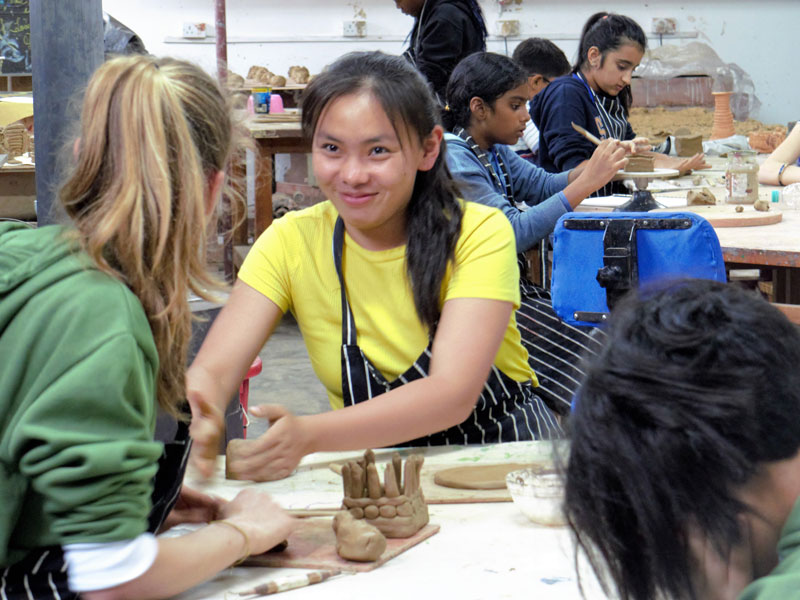
Social Evenings
Summer at Woodstock’s evening activities started off with a bonfire and finished with a blast – fireworks! And there was plenty of socialising in between. From foosball to Just Dance, the participants were immersed in energetic and engaging evenings.
On Friday and Saturday they played Marco Polo and enjoyed the pool in a break in the monsoon weather. Sunday began with a long trek up to the top of the hill for a Rokeby brunch & Scavenger Hunt. The walk up to Rokeby was at first daunting and met with cries of, ‘How many more minutes?’, but this soon turned to expressions of, ‘Wow, this is brilliant’ and grew into a highlight of the programme. For the brunch at Rokeby, participants, staff, interns and programme directors enjoyed a delicious buffet in the open air overlooking Mussoorie and, far below, Dehradun. After all had had their fill, the scavenger hunts began. These involved the participants being divided into junior and senior age groups, where the juniors had to do an exercise inspired by a TED talk, trading one object for another with people they met along their way. So, starting only with a postcard or an Oreo packet or a tiny book, they traded up to finish with three boxes of chocolate, a plant, and ten books. The senior group had to do a series of challenges involving strangers who they encountered on their hunt, and these strangers joined in on the video and photo challenges. Some of these challenges involved singing together, asking for their stories, and taking creative photographs.
Another highlight of the social activities was the annual open mic night. Though interns started the evening off, our participants soon realized the joy of performing and took the stage. Stand-up comedy, poetry, singing, stories, drama, improv–the night had it all! It ended with the youngest participant in the programme standing in front of everyone and courageously telling a story.
Plans for next year
Now that Summer at Woodstock 2018 is done, it’s time to reflect, to enjoy the memories, and to share stories with family and old friends. It’s also time to start imagining Summer at Woodstock 2019! And for this, we would like your help. We’re hoping to hold all this year’s programmes and activities again, but we’re also exploring ideas for new programmes, new activities, and completely new ways of experiencing the Woodstock surroundings.
Complete the form below if you want to receive the latest news about the 2019 Summer at Woodstock programme.

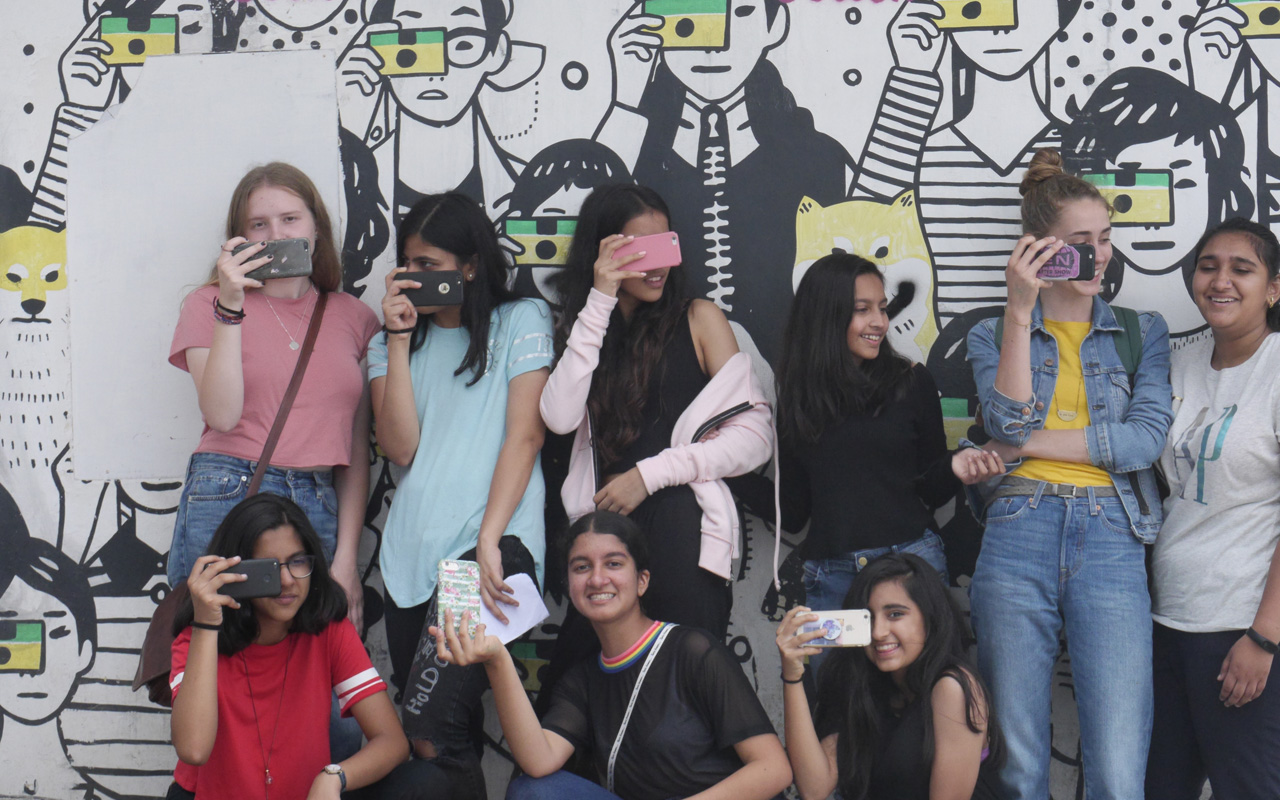




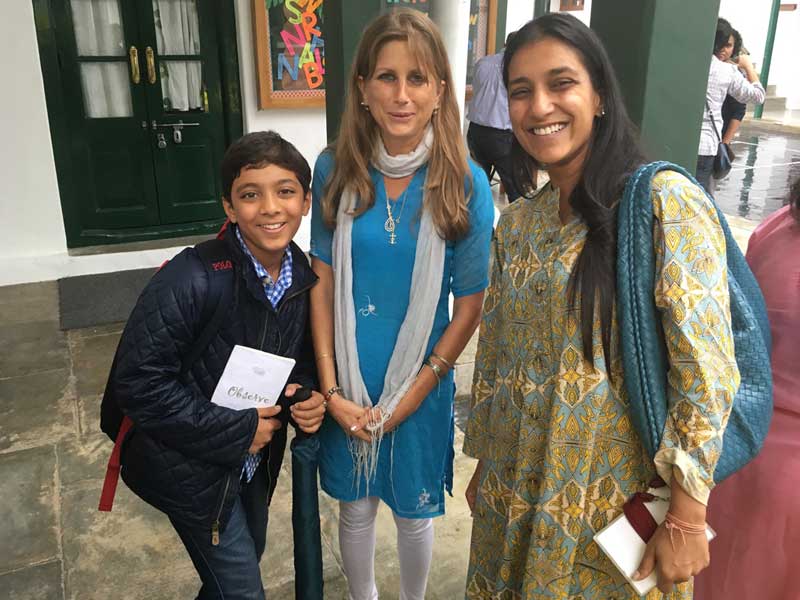
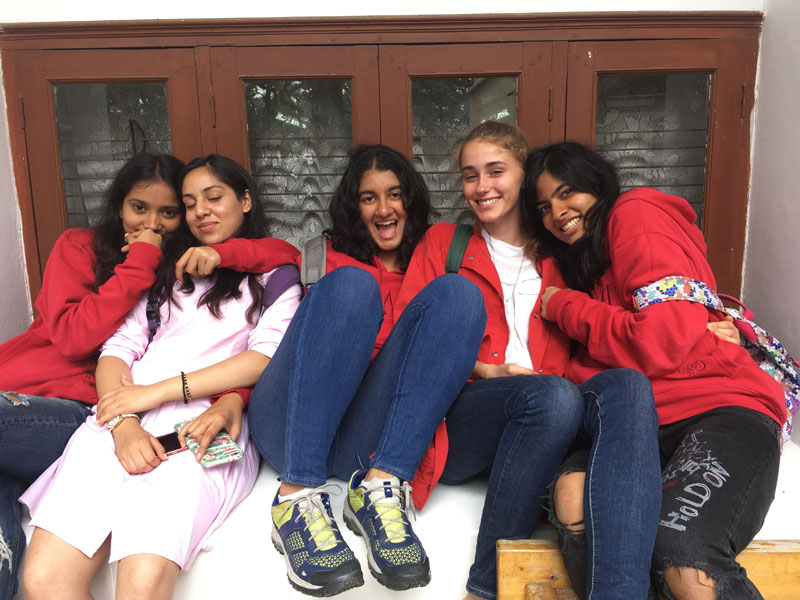
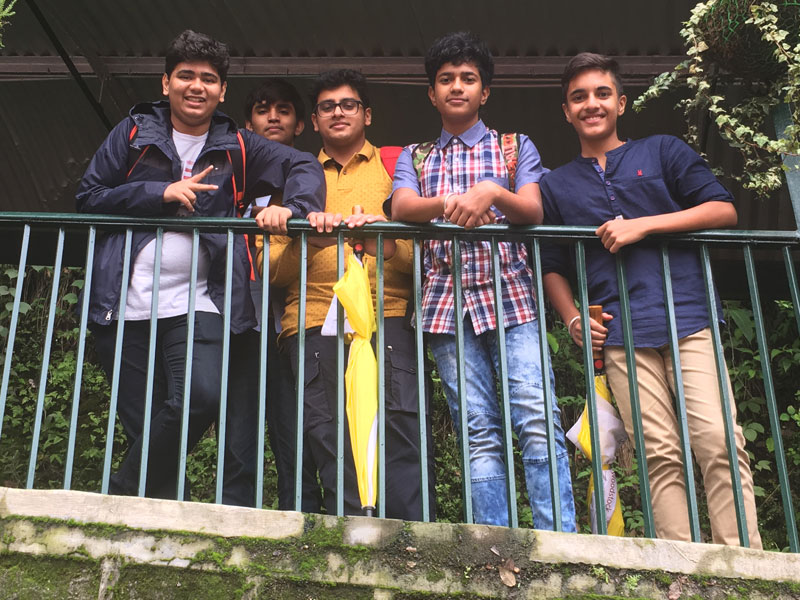
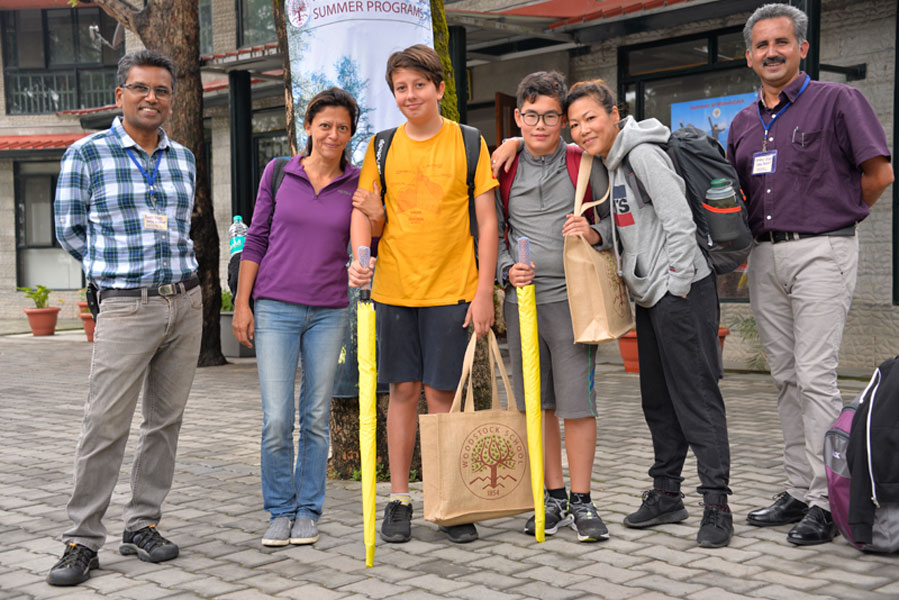
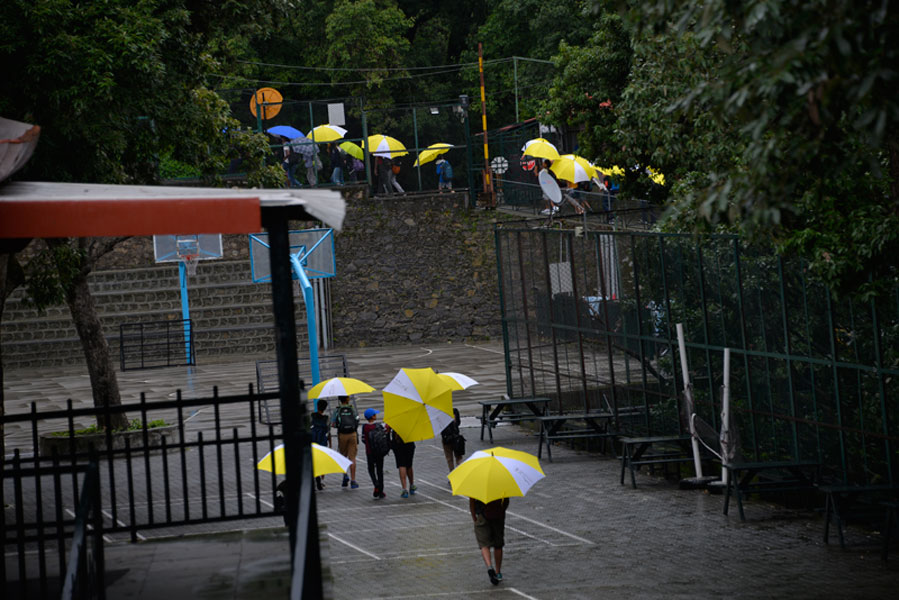
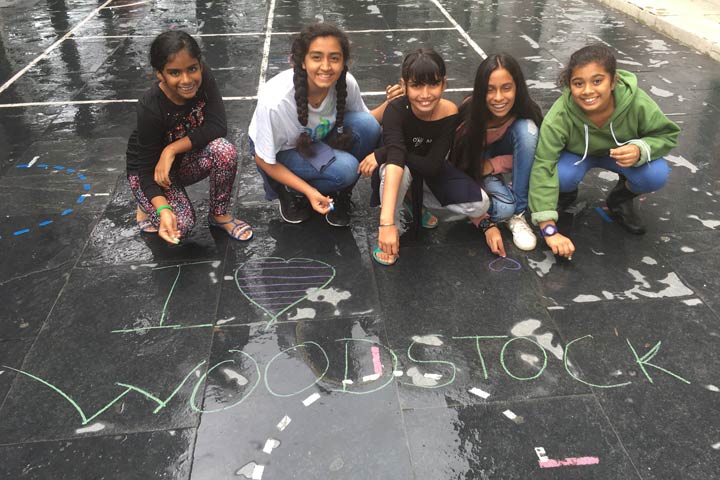
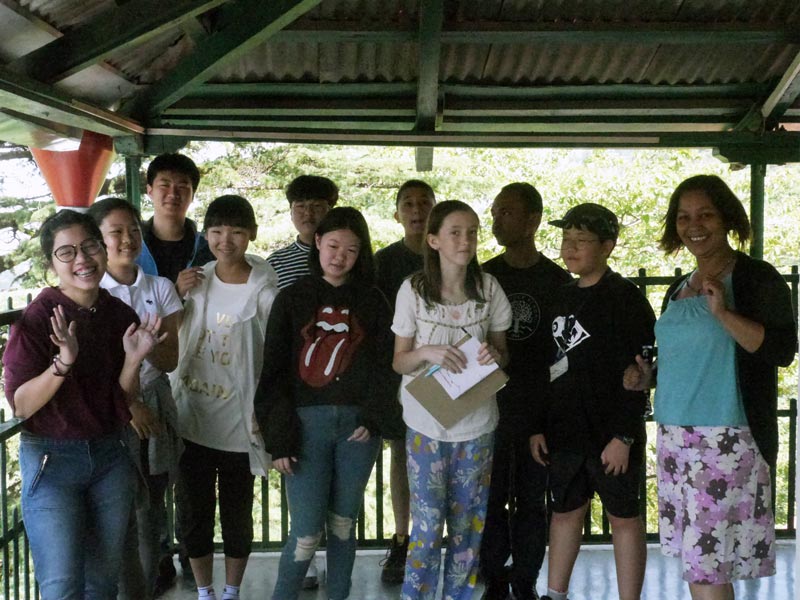
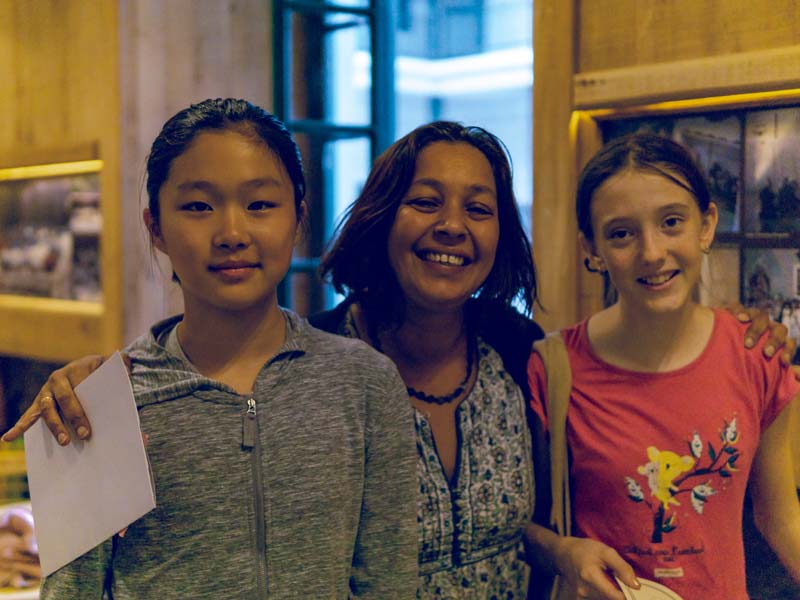
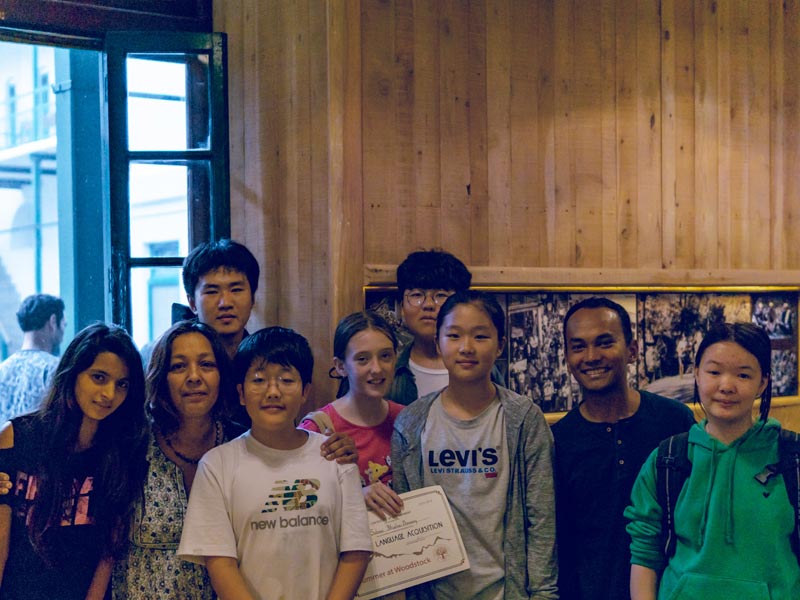
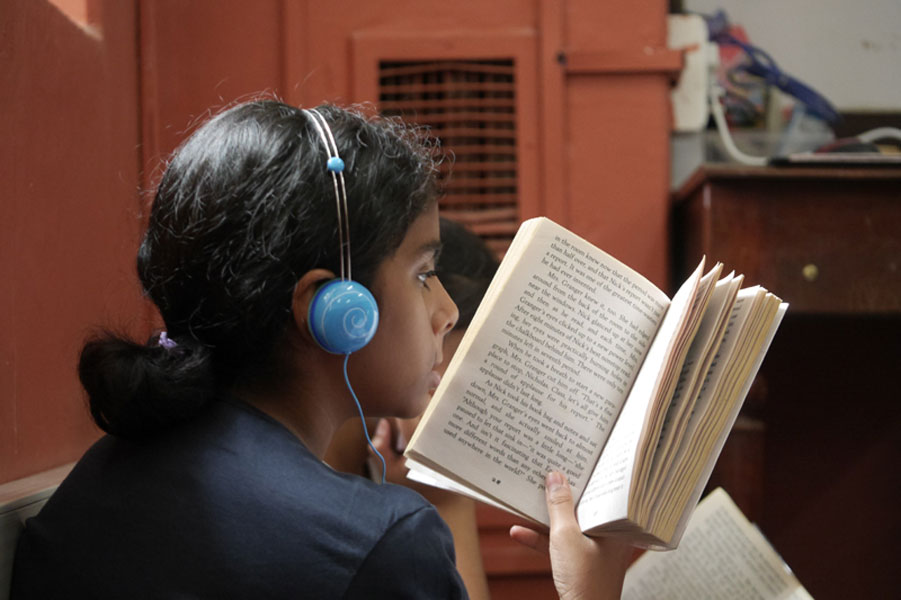
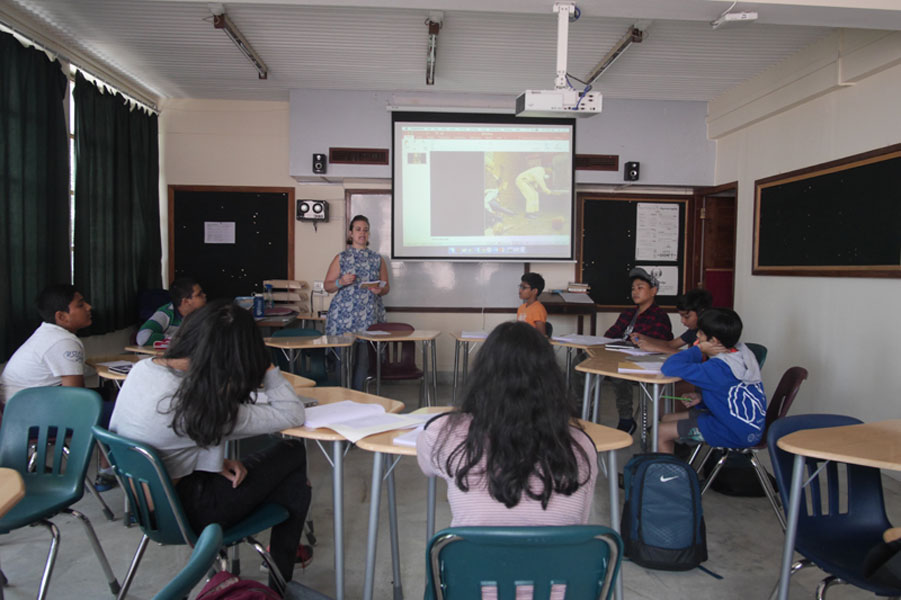
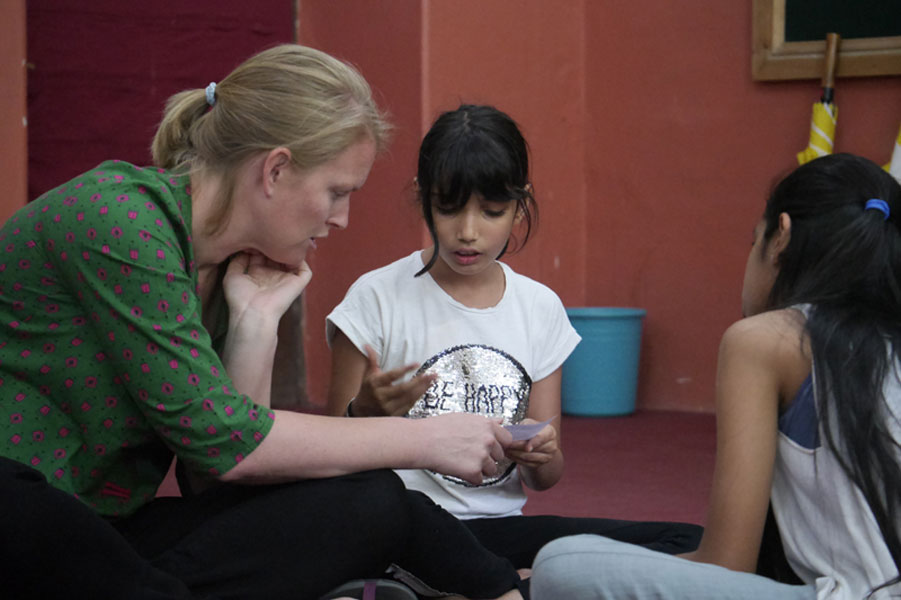
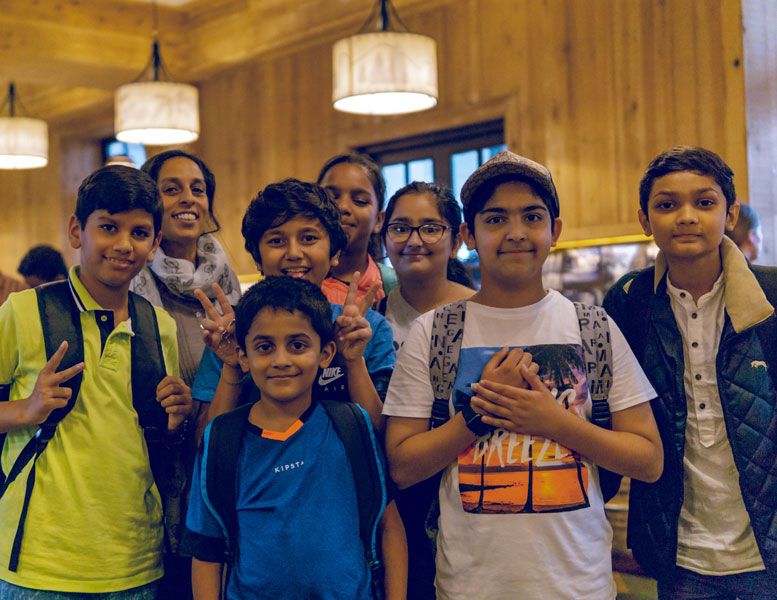
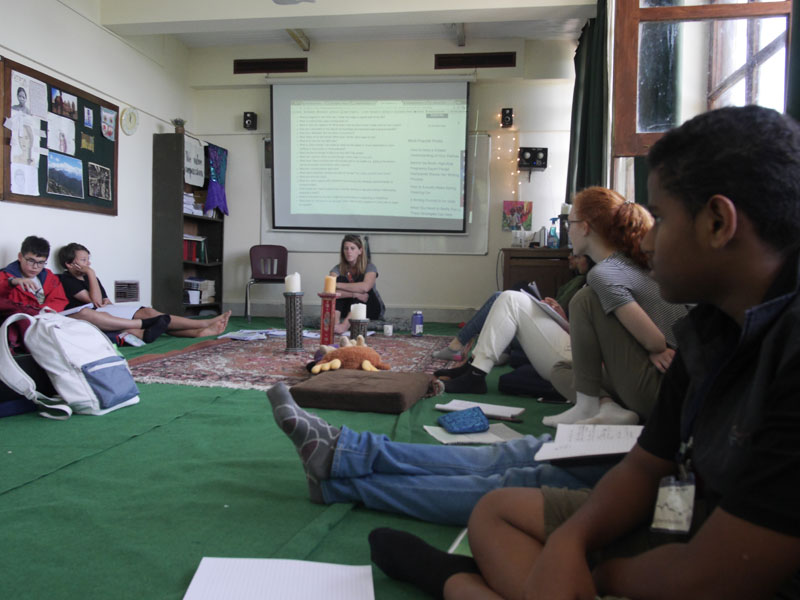
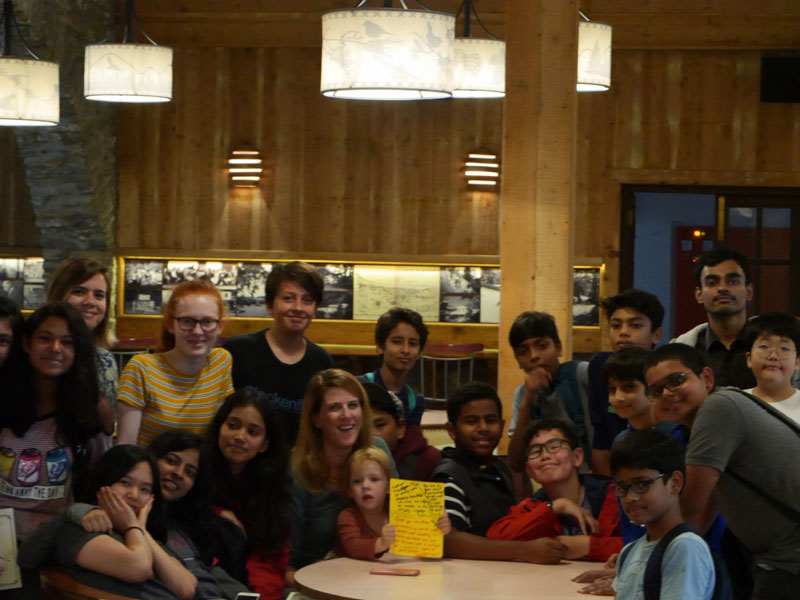
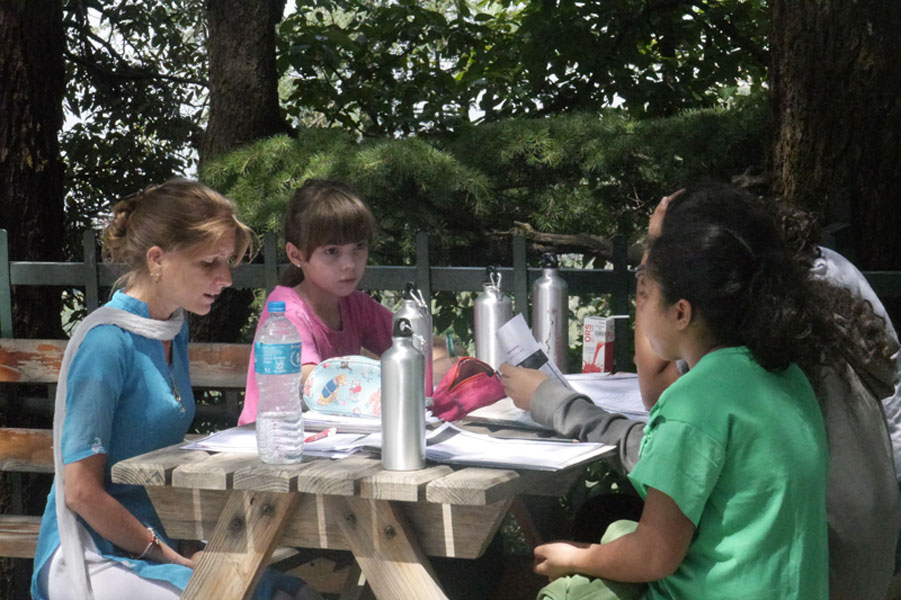
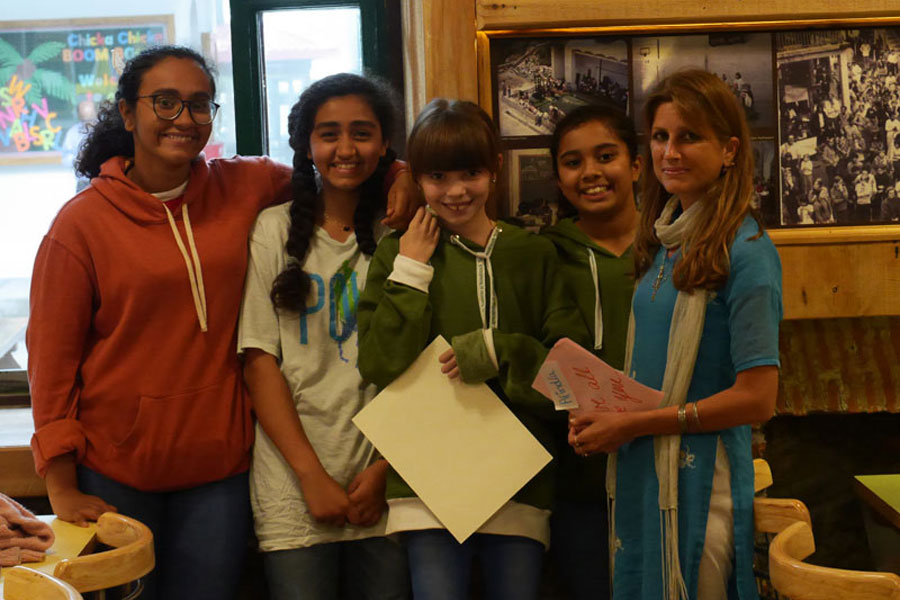
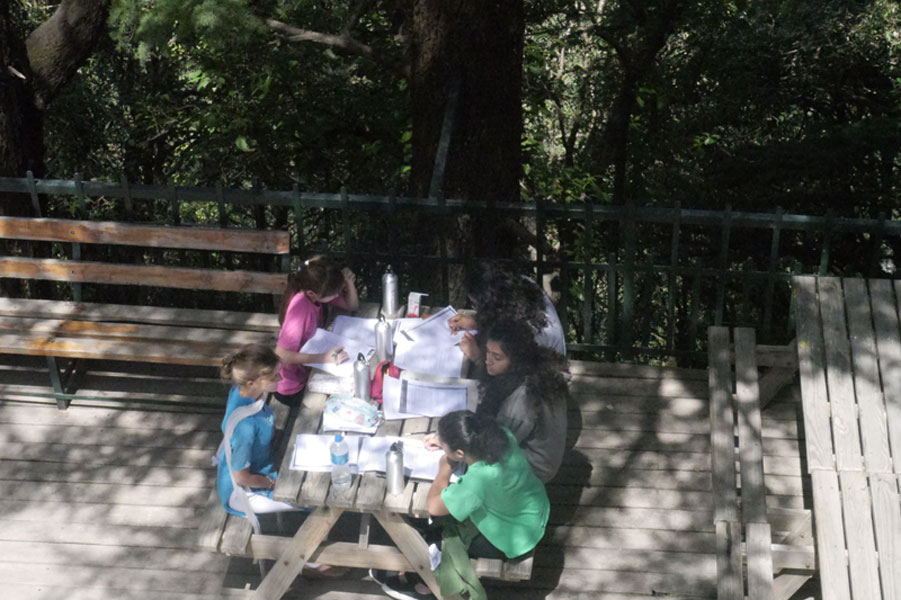
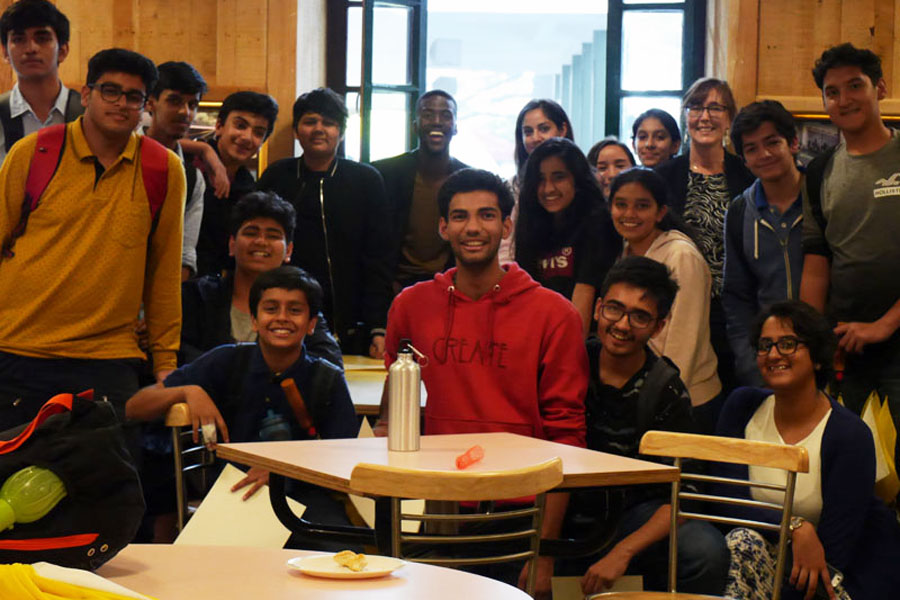
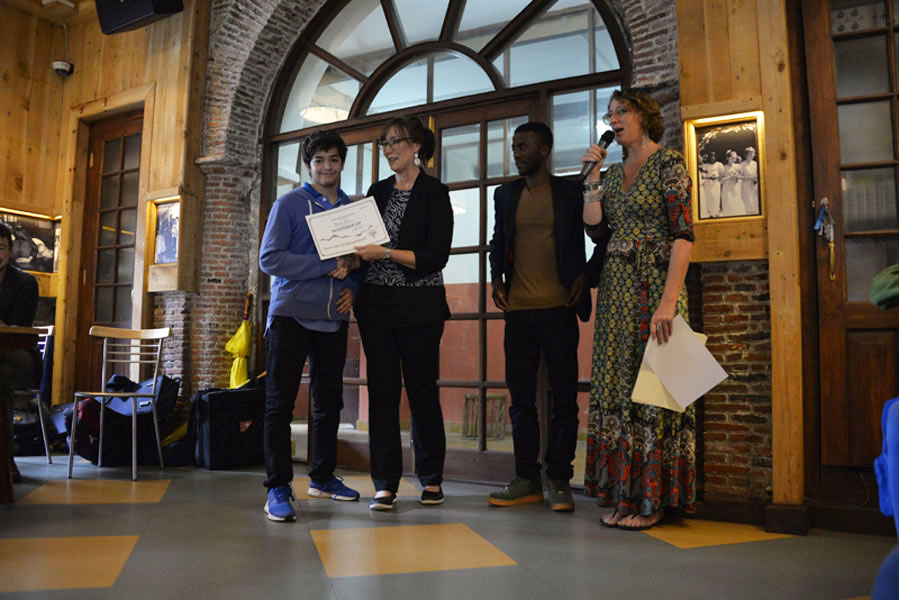
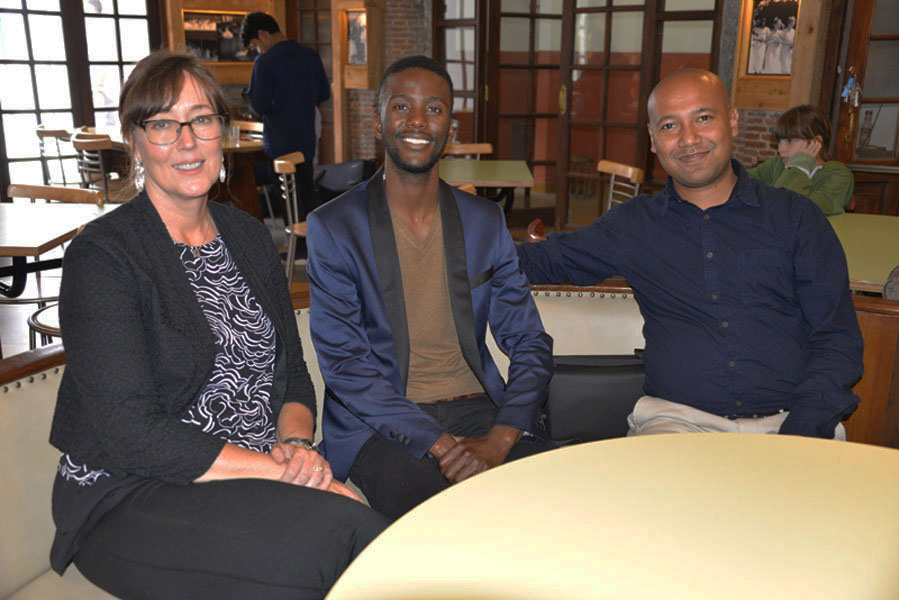
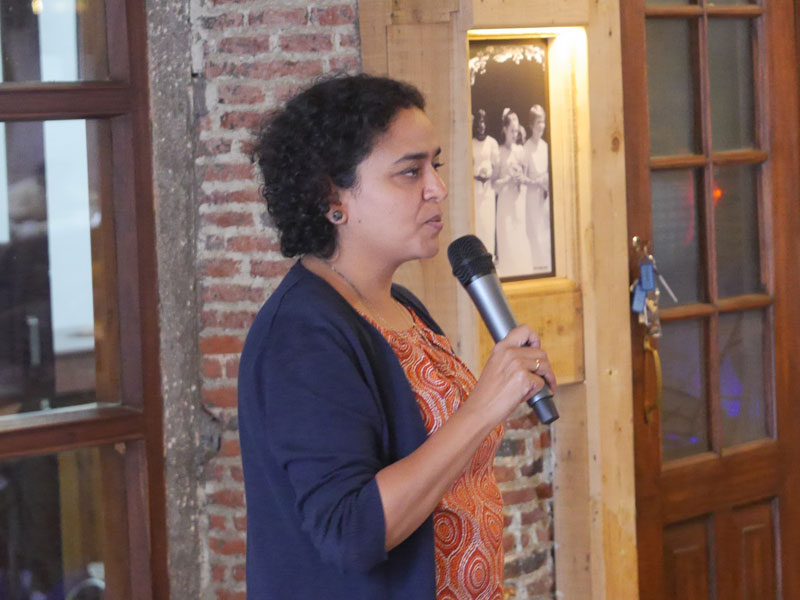
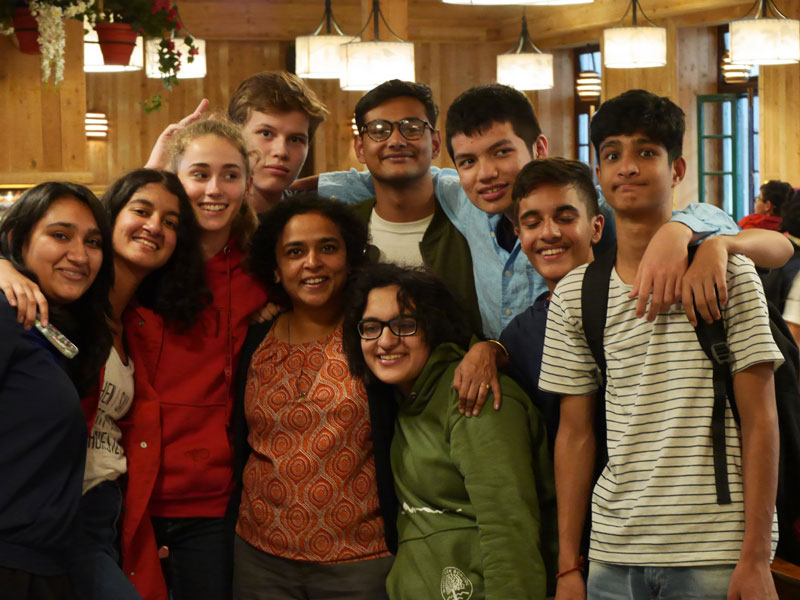
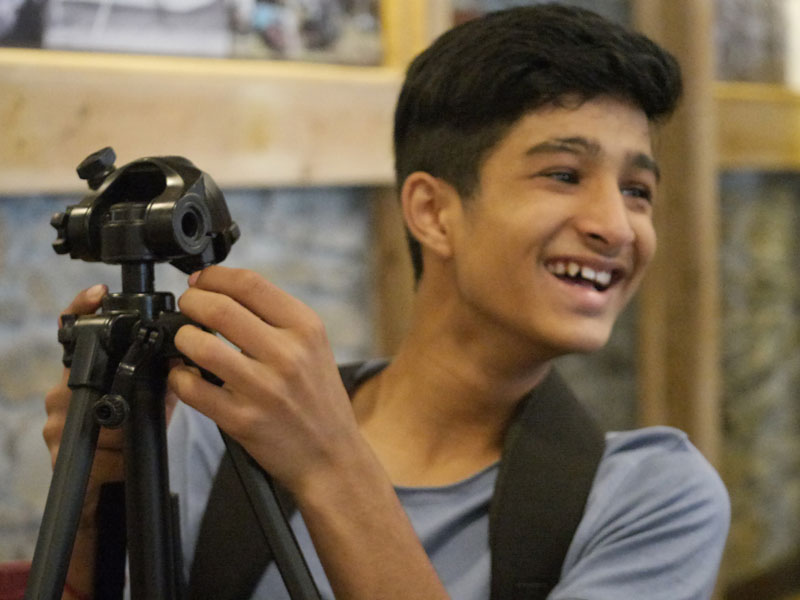

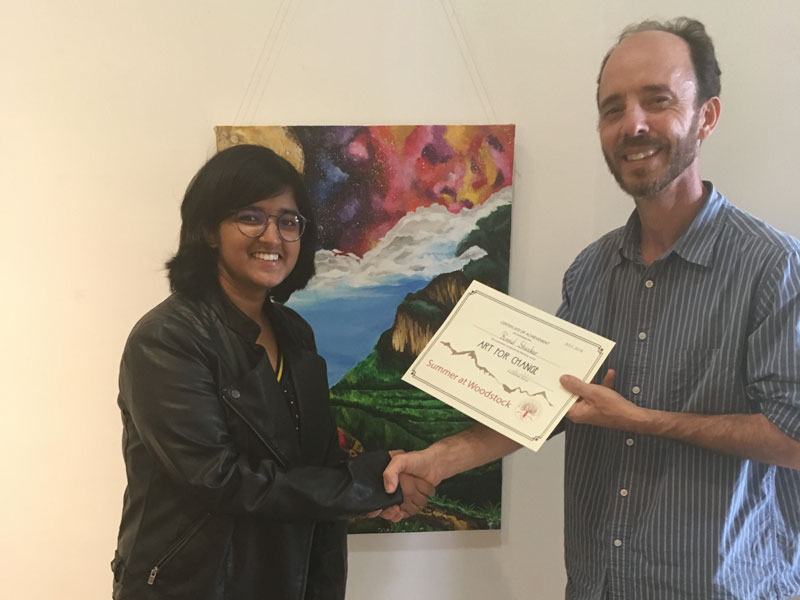
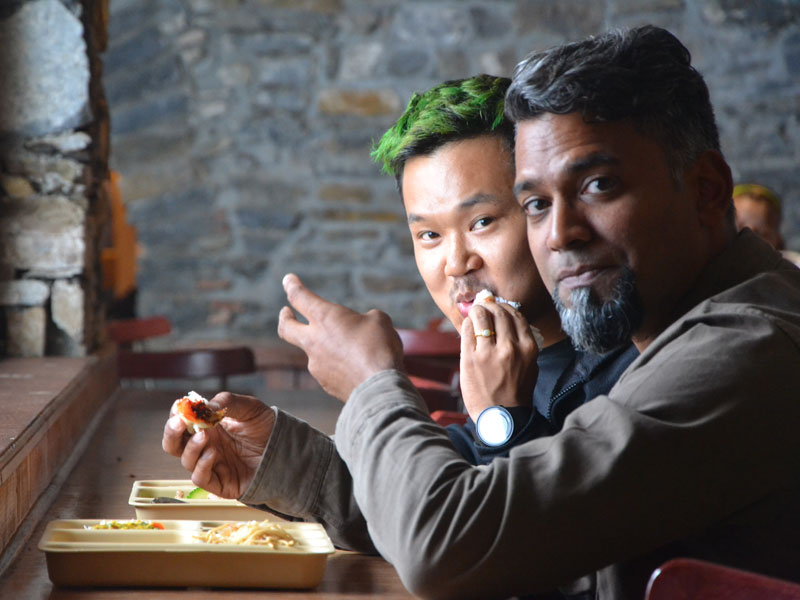
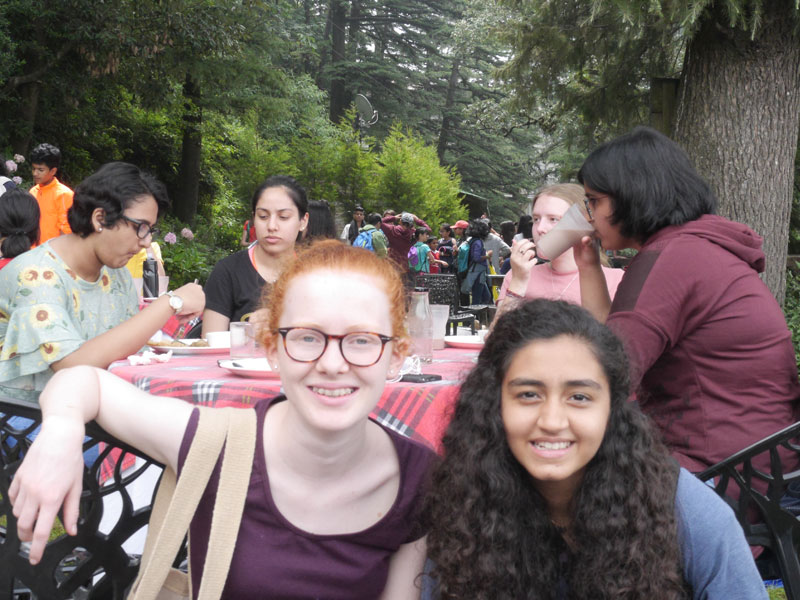
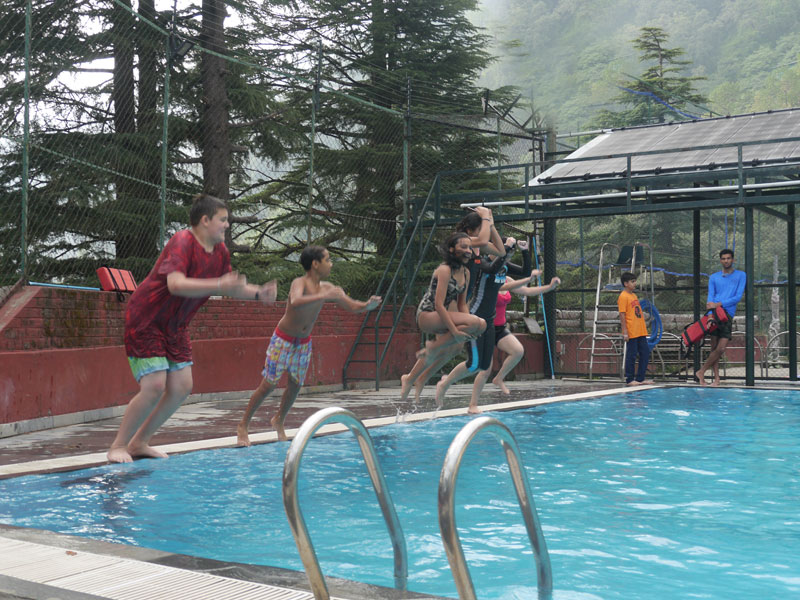
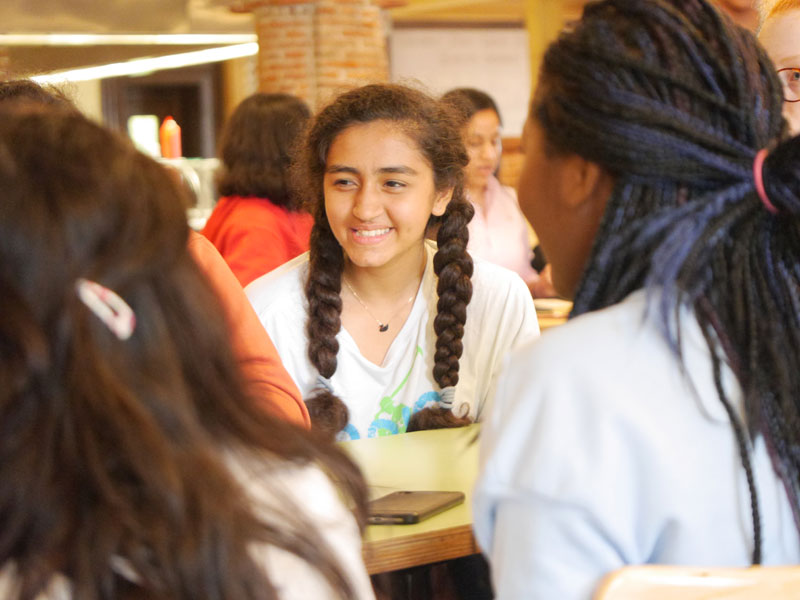
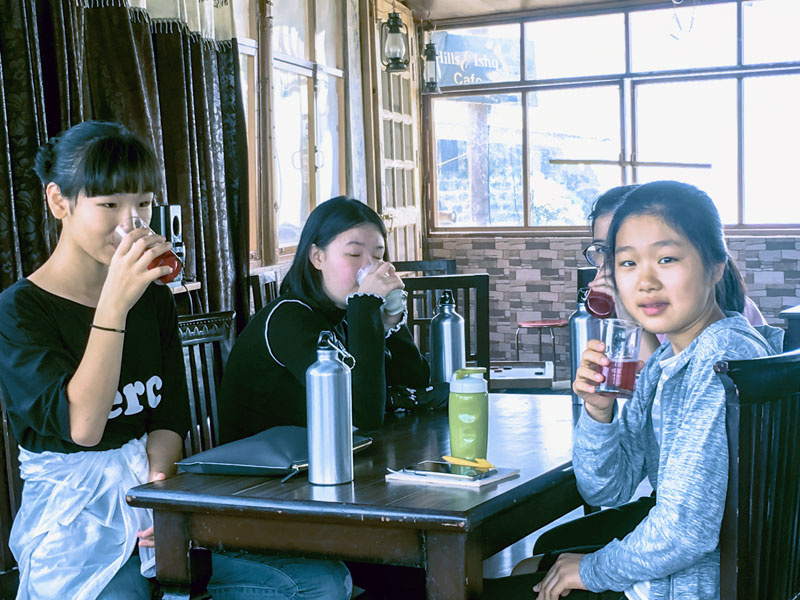
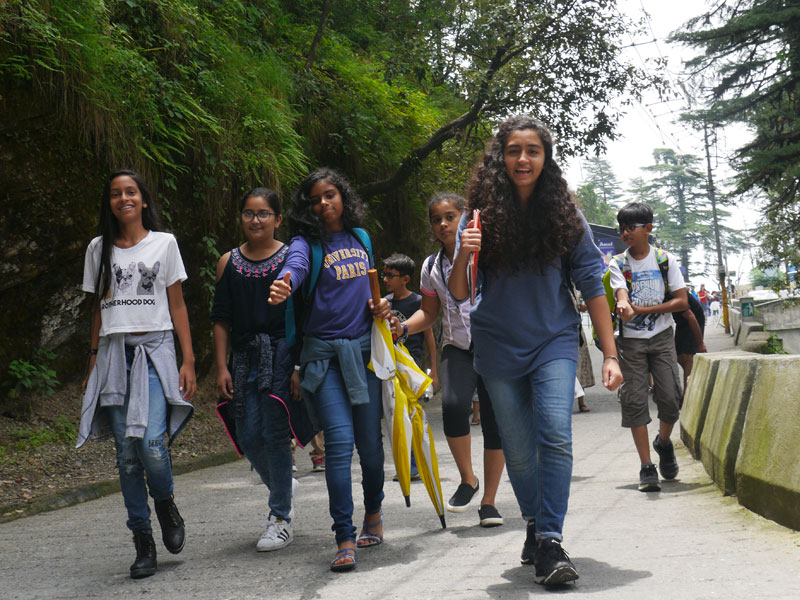
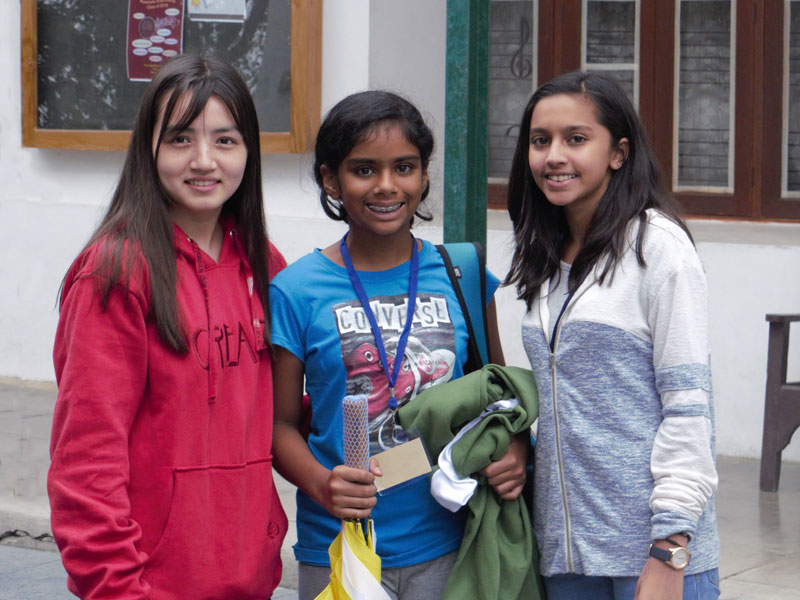
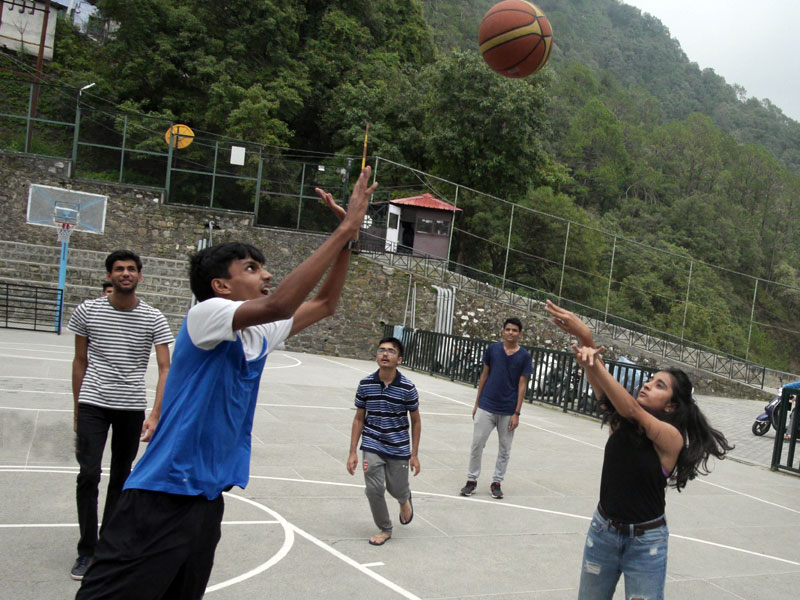
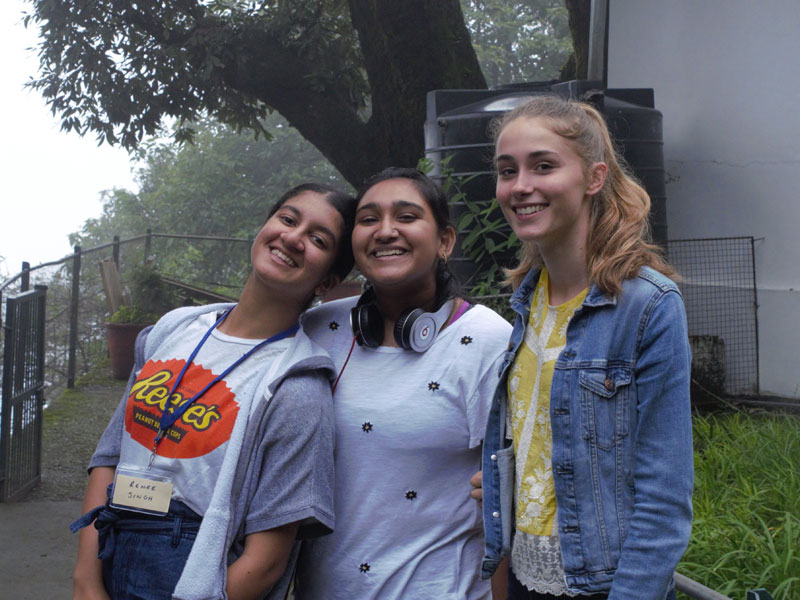
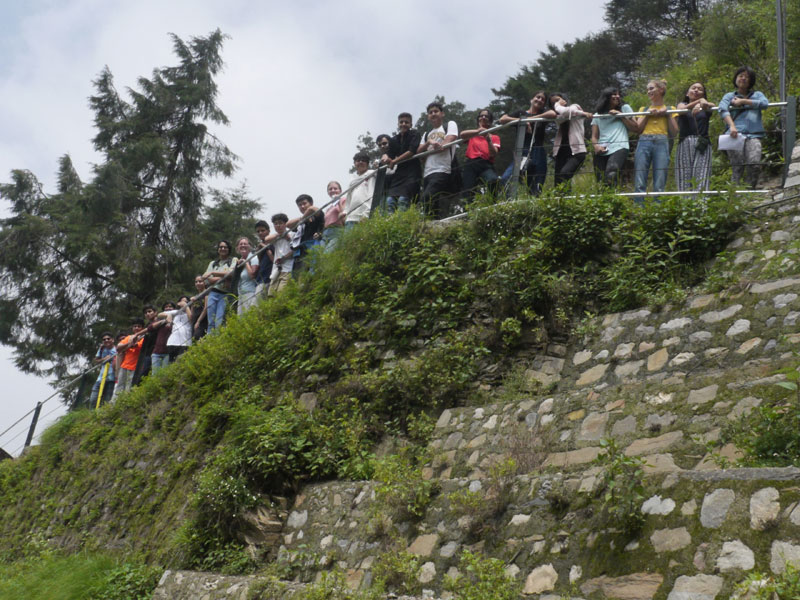
No Comments